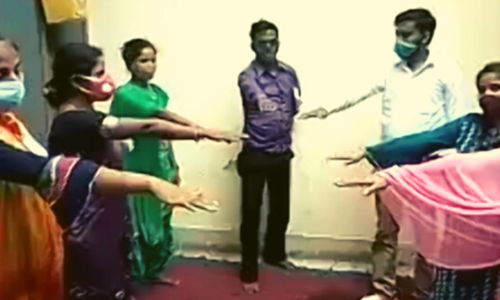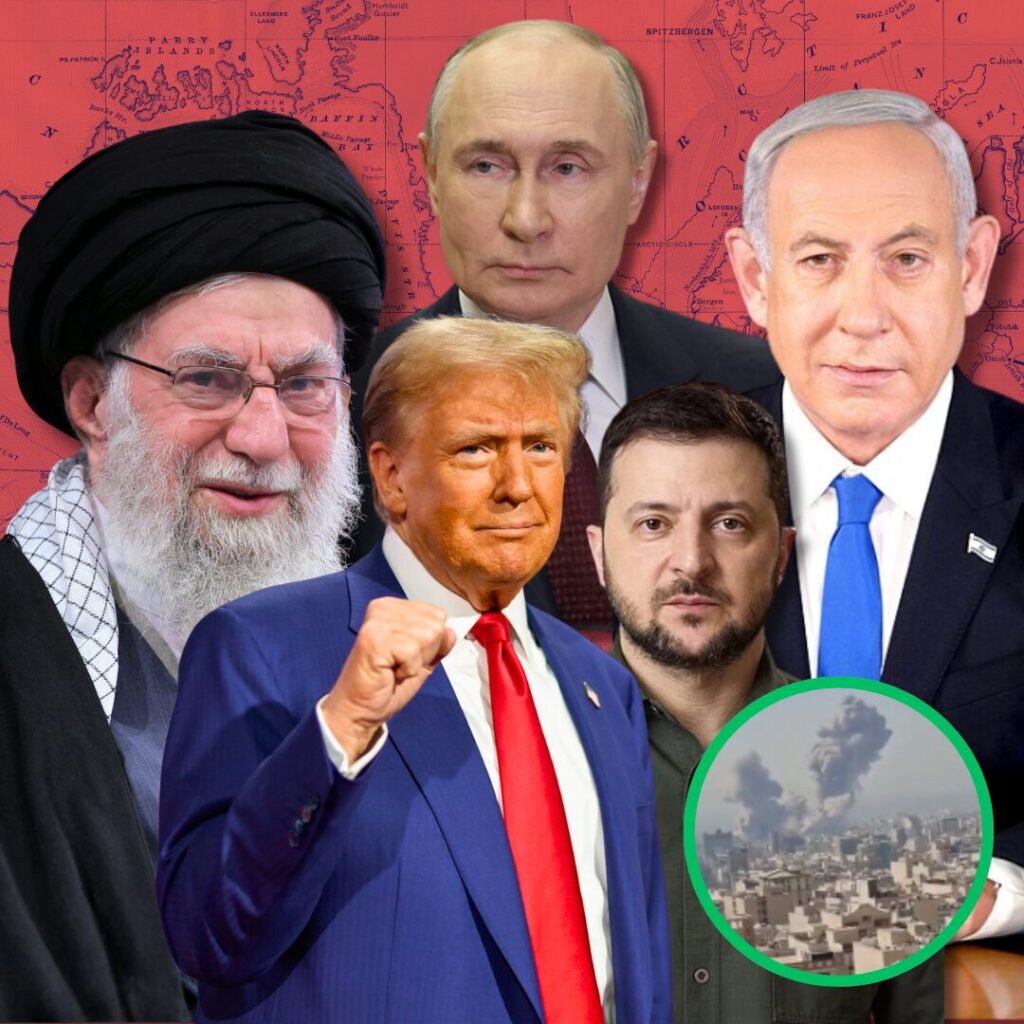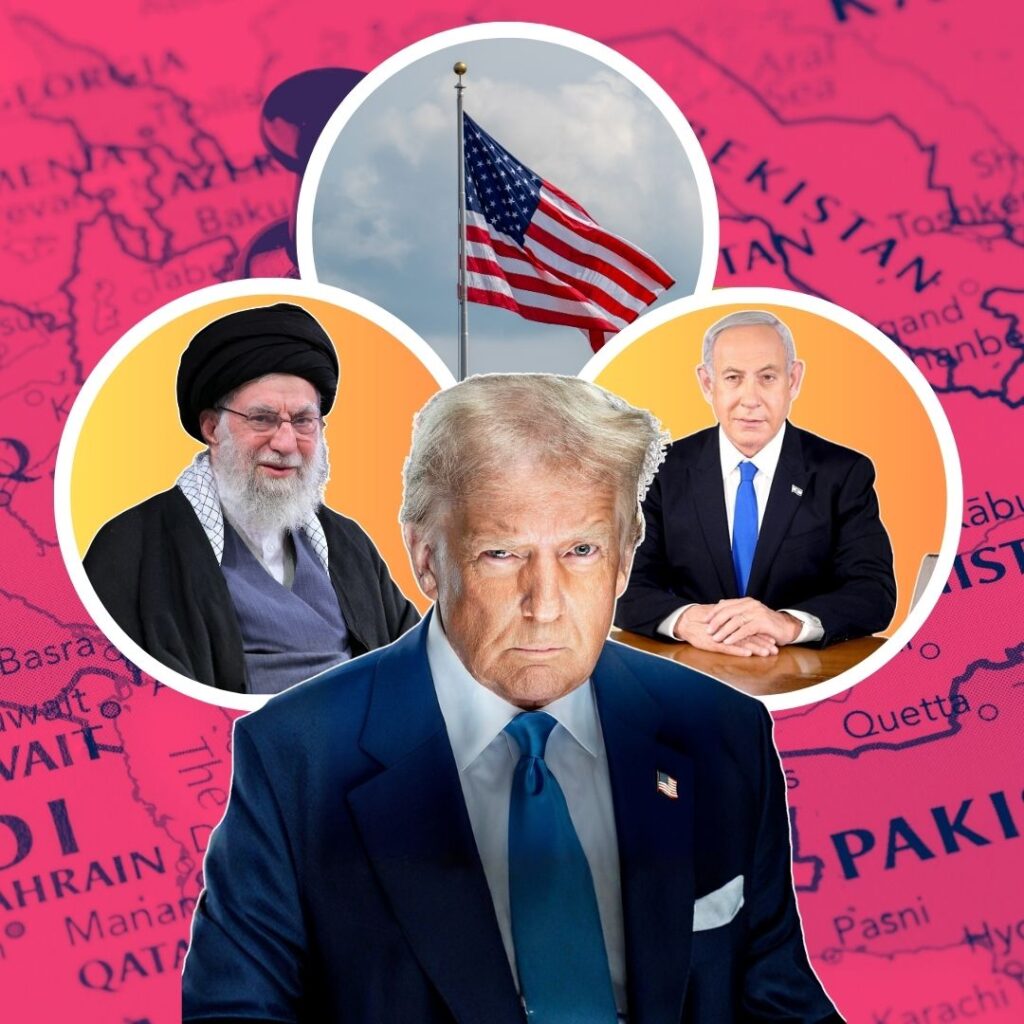I have been in the development sector for over 5 years. With Yeh Ek Soch Foundation, our work has been centred on the wellbeing of marginalised communities from rural and semi-urban areas of Lucknow and Sitapur in Uttar Pradesh. When the second wave of the pandemic hit, I remember receiving a call from a young girl from the community requesting sanitary napkins. If in 2020, sanitary napkins are not a part of essential commodities for households, I feel this is yet another challenge for us as field workers – to raise the voices of the unheard and demand for their rights and social security.
But I was soon to realise that lack of access to sanitary napkins was only the tip of the iceberg. I wasn’t prepared for how overwhelming engaging in relief work would be for me. For instance, there was a migrated community that was forced to move back to Chhattisgarh due to an extreme food crisis, and we had only one day to arrange supplies for them. We managed to get support for them with incredible difficulty. It was a nightmare to listen and witness stories like these of communities struggling during the pandemic.
‘Pandemic Changed Our Priorities’
Though adolescents and young people had some instinctual understanding of where we were heading, there was no space for them to talk about it. The pandemic has changed our priorities. How do you talk about your fears for the uncertain future when you are struggling to find two meals a day to ensure your family’s survival? How do you talk about how the pandemic is making you feel when all around you, the lockdown has disrupted education – with young girls dropping out of school and young people forced to take up work to support their families?
Experiencing all of this while also following social distancing made us forget about ourselves – our feelings, and more importantly, what really made us happy. Overwhelmed by the sense of hopelessness, it was easy to forget that there could be some way for us to be together.
It was at a time like this when #SaathNirbhar: Wellbeing Together emerged very organically from within the vartaLeap-ComMutiny ecosystem, a holistic public initiative built on the foundation of interdependence. It brought us back to ourselves by re-introducing us to the meaning of hope and support through collaborative relief and recovery initiatives.
Q-Ki National Championship: Wellbeing Edition
One of the wellbeing interventions, co-created under #SaathNirbhar was the Q-Ki National Championship: Wellbeing Edition – a reality check game show played by intergenerational teams that compete through interactive quizzes, Plutory (Plural Story) performances and Imaginative Practices that aimed to foreground the need for building resilient communities through building collective societal wellbeing during COVID-19.
More than 700 people virtually came together as 98 teams from 57 organisations across 16 states from India. As a facilitator with the Core Team, it was an enriching lifetime experience for me. I mentored ten teams from diverse backgrounds. Some of these teams were from vulnerable communities from Lucknow, Jaunpur and Faizabad (Uttar Pradesh) that the pandemic had severely hit. The sheer magnitude of this championship was beyond my imagination.
Each match in the game was played in three rounds, with each round focusing on a distinctive element of individual and collective wellbeing.
The first round – Interactive Quiz – increased our knowledge of some very pertinent mental health-related issues by challenging misconceptions.
The second round – Plutory (Plural Story) – focused on issue-based storytelling and roleplaying, where the participants showcased multiple perspectives around a single narrative to understand how one story could have numerous viewing points. 49.5%* participants said that they were able to look at Plutory (multiple viewpoints) to a single situation after their experience in the Q-ki National Championship.
The final round – Imaginative Practices – (my favourite one!), was a pool of thoughtful experiments designed by the teams towards better collective wellbeing in their own local contexts. In this round, the teams presented some great ideas like creating wellbeing policies, youth clubs, having psychologists at the school level and connecting more people to #SaathNirbhar.
The innovations that the teams brought in were truly inspirational to witness. One such inspiration that I have imbibed in my own life and the spaces I am a part of is setting aside a Wellbeing Hour, where we focus on sharing and seeking support from each other. “Q-ki (because) it is important to talk about mental health and wellbeing. The pandemic indicated the relevance of physical health but Q-ki showed us the strength of being together and seeking support wherever needed.”
Importance Of Seeking Support For Ourselves
Q-ki National Championship turned out to be the one missing piece in our response to COVID-19. I was very touched when one of the participants, Fatima Ansari (Yeh Ek Soch Foundation), shared how the championship has helped her understand the importance of reaching out to seek support for ourselves. She also shared how this experience has helped her take the message of wellbeing to the larger society, something she is really passionate about.
The Grand Finale of the Q-ki National Championship was held on August 12, i.e., the International Youth Day and Team Indhu from Aawaj (Madhya Pradesh) was crowned the National Champion, but it truly feels like every single one of us came out victorious. 96.4%* participants sharing that being a part of the championship has enhanced their wellbeing was a testament to the impact Q-ki had on the participants
“If someone asks me what kept me energised and motivated throughout the second wave, it would be Q-ki (because) I chose to share how I felt by opening myself to experiencing collective bonding and learning to trust people.”
After Q-ki, another recovery initiative that I am looking forward to is Togetherness Table – A collaborative and intergenerational intervention designed to help people to develop ‘feelings literacy’, such that they can identify, label, neutralise and transform negative feelings into ones that are positive. The intervention is set to begin in October, and you can reach out to vartaLeap-ComMutiny to be a part of this beautiful journey of transformation.
If you too have an inspiring story to tell the world, send us your story at mystory@thelogicalindian.com













